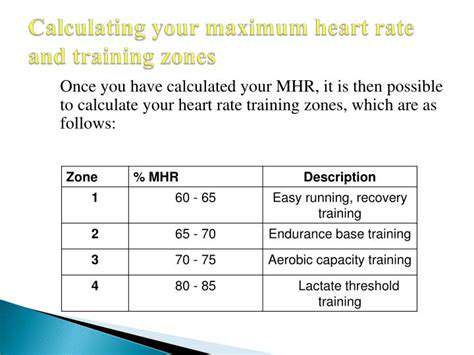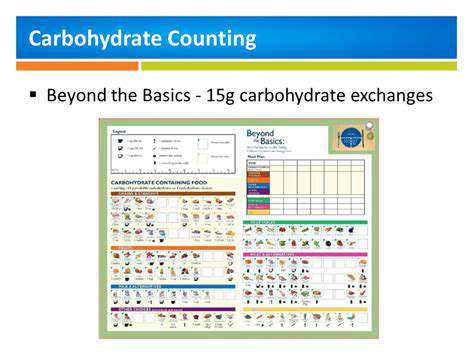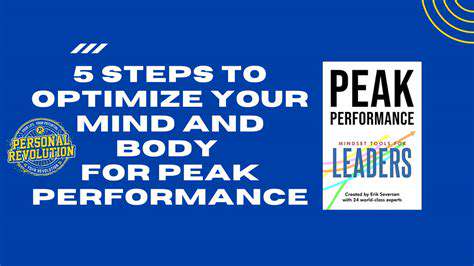Best Habits for Improving Your Memory
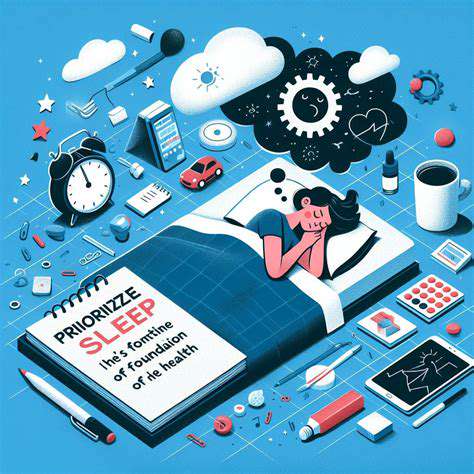
Establishing a Consistent Sleep Schedule
A consistent sleep schedule is crucial for regulating your body's natural sleep-wake cycle, also known as the circadian rhythm. This rhythm plays a vital role in various bodily functions, including hormone production and energy regulation. Sticking to a regular sleep schedule, even on weekends, helps synchronize your internal clock with the external world, leading to improved sleep quality and overall well-being. Consistency makes it easier for your body to anticipate sleep and wake times, promoting a more restful night's sleep.
Developing a predictable bedtime routine can also significantly contribute to better sleep. This routine should include relaxing activities that signal to your body that it's time to wind down, such as taking a warm bath, reading a book, or listening to calming music. These activities help to reduce stress and anxiety, preparing your mind and body for sleep.
Optimizing Your Sleep Environment
Creating a conducive sleep environment is essential for maximizing sleep quality. Darkness, quiet, and a comfortable temperature are key elements to consider when designing your sleep sanctuary. Reducing light exposure before bed is particularly important, as light can interfere with the production of melatonin, a hormone crucial for sleep initiation. Using blackout curtains, earplugs, or a white noise machine can help create the ideal environment for a good night's sleep.
A comfortable mattress and pillows are also important factors to consider. Investing in high-quality bedding that supports your body properly can significantly impact your sleep quality. A supportive mattress and pillows can help prevent discomfort during the night, leading to uninterrupted sleep and improved overall well-being.
Managing Stress and Anxiety
Stress and anxiety can significantly impact your ability to fall asleep and stay asleep. Chronic stress can disrupt your sleep cycle and lead to various sleep disorders. Identifying and addressing the sources of stress in your life, whether it's work, relationships, or personal issues, is crucial for improving sleep quality. Practicing relaxation techniques, such as deep breathing exercises, meditation, or progressive muscle relaxation, can help manage stress and anxiety, promoting a more peaceful and restful sleep.
Establishing healthy coping mechanisms for stress can also benefit your sleep. Engage in activities that you find relaxing and enjoyable, such as spending time in nature, pursuing hobbies, or engaging in social activities. These activities can help to reduce stress and promote a sense of calm, making it easier to fall asleep and stay asleep throughout the night.
Understanding the Role of Diet and Hydration
Your diet and hydration habits can significantly affect your sleep quality. Consuming heavy meals or caffeine close to bedtime can disrupt your sleep patterns. Eating a balanced diet with adequate nutrients and staying hydrated throughout the day can contribute to better sleep. Limit caffeine and alcohol intake, especially in the hours leading up to bedtime. Alcohol, while it may initially seem to induce sleep, can disrupt sleep later in the night, leading to a less restful sleep.
Paying attention to what you eat and drink can have a substantial impact on how well you sleep. Avoid sugary or processed foods before bed as these can lead to energy spikes that disrupt sleep patterns. Instead, opt for lighter snacks like fruits or yogurt.
The Importance of Regular Exercise
Regular physical activity is beneficial for overall health, including sleep quality. Exercising regularly can help regulate your sleep-wake cycle and improve sleep efficiency. However, avoid intense exercise close to bedtime, as it can increase your body temperature and alertness, making it harder to fall asleep. Moderate exercise during the day can be beneficial for sleep quality. Find an activity you enjoy and make it a part of your regular routine.
The amount of exercise and the time of day it's performed can have a significant impact on sleep quality. By creating a balanced routine that includes both physical and mental activities, you can promote a more restorative sleep pattern.
Addressing Underlying Medical Conditions
Certain medical conditions can significantly impact sleep quality. If you're experiencing persistent sleep problems, it's crucial to consult a healthcare professional to rule out any underlying medical conditions that might be contributing to the issue. Various medical conditions, such as sleep apnea, restless legs syndrome, and anxiety disorders, can disrupt sleep patterns. Addressing any underlying health issues can lead to significant improvements in sleep quality and overall well-being.
A thorough evaluation by a healthcare provider can help identify potential underlying medical conditions. This evaluation may involve a physical exam, medical history review, and potentially sleep studies to determine the cause of sleep disturbances.
Harnessing the Power of Active Recall

Active Recall: A Powerful Learning Technique
Active recall is a learning technique that involves retrieving information from memory rather than passively rereading or reviewing it. This method, often contrasted with passive learning strategies, has shown significant benefits in knowledge retention and understanding. By actively engaging with the material, you're forcing your brain to work harder to retrieve the information, strengthening the neural pathways associated with that knowledge. This process leads to a deeper understanding of the subject matter.
Engaging in active recall can be as simple as trying to answer a question about a topic you've read or studied without looking at the source material. It could also involve creating flashcards, teaching the material to someone else, or summarizing key concepts in your own words. These actions challenge your memory and deepen your comprehension.
Implementing Active Recall Strategies
Implementing active recall strategies can be integrated into various learning environments. For instance, when studying a chapter in a textbook, try to summarize the key concepts and main points without looking at the text. This process forces you to actively engage with the material, triggering your memory and consolidating your understanding.
Another effective strategy is creating flashcards and using them to test your knowledge. By writing down the questions and answers on flashcards, you are actively practicing retrieval. Regularly quizzing yourself with these flashcards strengthens the connections in your brain and reinforces your memory of the material.
Furthermore, teaching the material to someone else is a fantastic active recall exercise. Explaining the concepts in your own words forces you to understand the material at a deeper level. This method not only helps you solidify your knowledge but also identifies gaps in your understanding that you might have missed before.
Benefits of Active Recall for Retention
Active recall has proven to be a highly effective tool for enhancing memory and knowledge retention. Studies have consistently demonstrated that using active recall strategies significantly improves learning outcomes compared to passive learning methods. The key benefit lies in the active engagement of the brain, which strengthens neural pathways and solidifies memory traces.
This improvement in retention isn't just about memorization; it's about gaining a deeper understanding of the subject matter. By actively retrieving information, you are actively processing it, making it more accessible and meaningful in the long run.
Active Recall in Different Learning Contexts
Active recall isn't limited to academic settings. It can be applied to various aspects of learning and personal development. For example, when trying to remember a piece of information, such as a phone number or a specific date, actively recalling it from memory strengthens the neural pathways associated with that information.
In a professional context, actively recalling past experiences, projects, or client interactions helps to improve problem-solving skills and decision-making. Recalling relevant details from prior experiences allows for a more nuanced and effective approach to new challenges.
Beyond academics and work, active recall can be beneficial in personal development. Recalling personal goals, values, or past achievements can foster self-awareness and provide insights for future endeavors. This process not only enhances memory but also reinforces positive habits and encourages personal growth.
Mindfulness and Meditation for Enhanced Focus
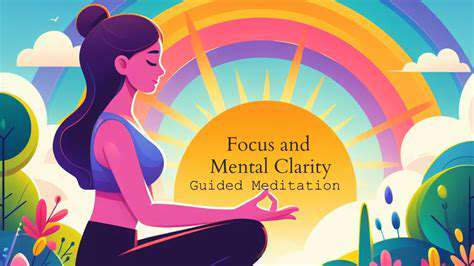
Mindfulness Practices for Enhanced Focus
Mindfulness, at its core, involves paying attention to the present moment without judgment. This practice, often integrated with meditation, cultivates a heightened awareness of thoughts, feelings, and sensations as they arise. By focusing on the here and now, practitioners can develop a greater capacity for self-regulation and emotional intelligence. Practicing mindfulness can reduce stress and anxiety by shifting attention away from rumination on the past or worry about the future.
Developing a consistent mindfulness practice can significantly improve focus and concentration. In a world saturated with distractions, the ability to quiet the mind and direct attention is a valuable asset. Regular mindfulness exercises can strengthen the ability to stay present and engaged in tasks, leading to a more productive and fulfilling life. Through focused attention, mindfulness fosters clarity and reduces mental clutter, enabling individuals to perform tasks with greater efficiency.
The Benefits of Meditation for Emotional Well-being
Meditation, a cornerstone of mindfulness practices, involves training the mind to focus on a specific object, thought, or activity, such as the breath. This focused attention helps to quiet the incessant chatter of the mind, allowing for a deeper connection to the inner self. Through regular meditation practice, individuals can cultivate emotional regulation and resilience, better managing stress and navigating challenging emotions. Meditation fosters a greater understanding of one's own emotional responses, which is crucial for building emotional intelligence.
Meditation's impact on emotional well-being extends beyond stress reduction. It promotes a sense of calm and inner peace, allowing individuals to approach life's challenges with greater equanimity. This inner peace translates into a more positive outlook and improved relationships, leading to a more fulfilling and balanced life. By fostering self-awareness and emotional regulation, meditation lays the groundwork for a healthier and happier emotional life.
Integrating Mindfulness and Meditation into Daily Life
Incorporating mindfulness and meditation into daily routines is key to reaping their full benefits. Simple practices like taking a few moments to focus on the breath before starting a task or during stressful moments can make a profound difference. Bringing mindfulness to everyday activities, like eating or walking, can enhance appreciation for the present moment.
Integrating these practices into daily routines can be achieved through various methods, such as setting aside dedicated time for meditation, incorporating mindful moments into existing activities, or utilizing apps and guided meditations. Finding what works best for individual needs and preferences is crucial for maintaining a consistent practice. Consistent effort and patience are vital for realizing the transformative potential of these practices, leading to a more fulfilling life experience.
Mindful movement practices like yoga and tai chi can also enhance the benefits by connecting the body and mind. These activities enhance mindfulness by focusing on the physical sensations and movements, promoting awareness and promoting a deeper connection between body and mind. Combining these practices with a mindful approach to daily tasks will create a more balanced life.
The Serengeti's vast and diverse landscapes offer a photographer's dream. Rolling grasslands, dotted with acacia trees, transition seamlessly into rocky outcrops and riverbeds. These varied terrains provide endless opportunities to capture the subtle beauty of the environment, from the golden hues of the sunrise painting the savanna to the dramatic shadows cast by the African sun. The vastness of the plains allows for breathtaking panoramic shots, while the close-quarters opportunities offered by the wildlife make for dynamic and captivating images. The interplay of light and shadow across these landscapes is truly a photographer's masterpiece waiting to be discovered.
Read more about Best Habits for Improving Your Memory
Hot Recommendations
-
*Guide to Managing Gout Through Diet
-
*Best Habits for Financial Well being
-
*How to Build a Routine for Better Mental Health
-
*How to Eat Healthy on a Budget [Tips & Meal Ideas]
-
*Guide to Practicing Self Acceptance
-
*How to Incorporate More Movement Into Your Day
-
*Guide to Managing Chronic Pain Naturally
-
*Guide to Building a Reading Habit for Well being
-
*Top 5 Weight Loss Supplements That Actually Work
-
*Best Exercises for Postpartum Recovery [Beyond Abdominal Work]
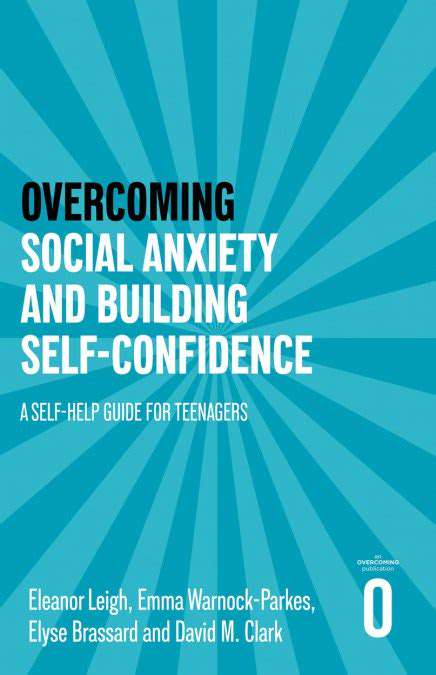
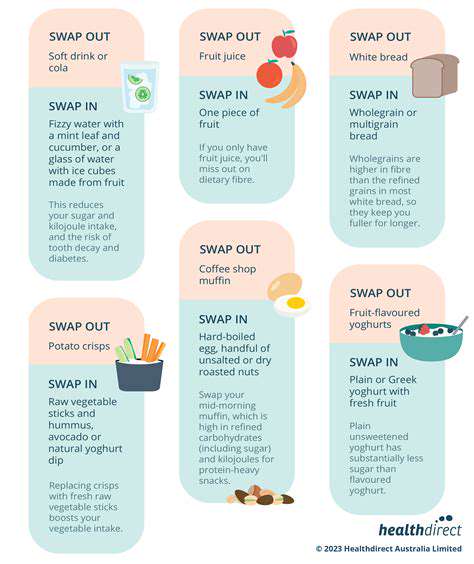
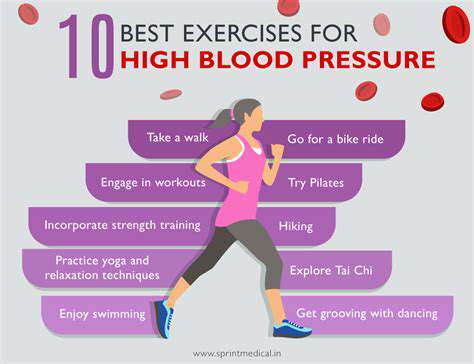
![Guide to Training for a Triathlon [Beginner Plan]](/static/images/26/2025-05/Running3ALayingtheGroundwork.jpg)


